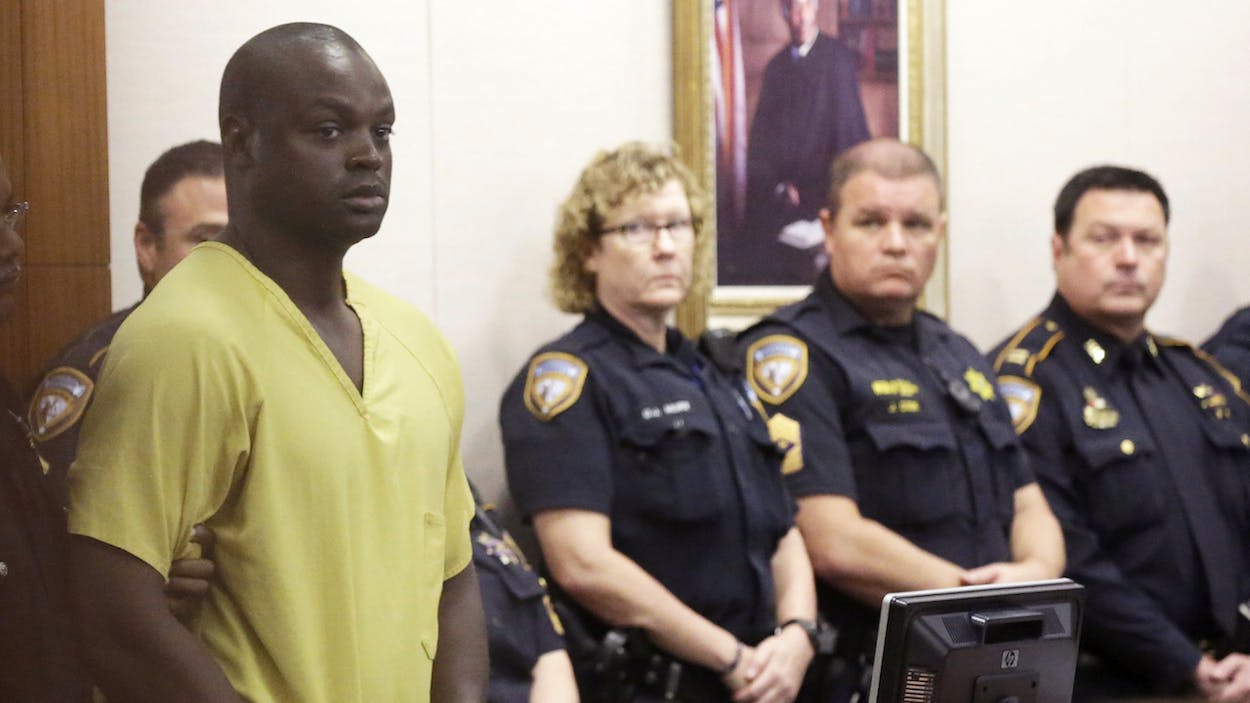Let’s put this right out there at the beginning: In the scope of the tragedy, it doesn’t make a bit of difference if Harris County Sheriff’s Deputy Darren Goforth was having an affair. His personal life is none of our business, and any attempt to use the woman who claimed to be his mistress to smear the slain officer is vile. Talking about it does nothing for us except to hurt his family, who are already suffering enough. Goforth’s death is tragic and horrible regardless of the veracity of this woman’s claims, and no one should suggest otherwise.
A story like the one from the New York Daily News on Tuesday, which speculated on Goforth’s personal life, fails readers by introducing an irrelevant, but lurid, suggestion about the deputy. But there is one place where the detail, if it’s true, could be relevant: court. And Anthony Osso, the defense attorney representing alleged killer Shannon Miles, is in the very difficult position of trying to defend someone accused of doing something horrible.
As the Houston Chronicle reports Osso is relying on the testimony of the woman claiming to be Goforth’s mistress to explain what the deputy was doing at the gas station that night. If Goforth wasn’t there in an official capacity as a peace officer as he was said to be initially, the capital murder charge Miles faces for killing an officer in the line of duty would be downgraded to a murder charge, which could save him from the death penalty.
“My understanding is that he was at this station meeting with this young lady who has been identified as a witness,” said Anthony Osso, who is representing Shannon Miles, charged with capital murder in the case.
Standing outside his downtown Houston office, Osso said determining why Goforth was at the Chevron is crucial. For the killing to be considered a capital murder in this case, it would need to involve a deputy acting in the “lawful discharge of an official duty,” Osso said.
If Goforth was there to meet with the unidentified woman, rather than to gas up his patrol car, that could prove critical to the defense, Osso said at the press availability.
“From my client’s standpoint, this would no longer be a capital murder but it would be murder,” Osso argued. “I want to get (the death penalty) off the table.”
It’s a complicated issue—and Osso, who is defending a less-than-sympathetic client, may be grasping at straws. But he’s correct that “filling the gas tank on a patrol car” is carrying out an official duty, but “meeting a woman at a gas station for personal reasons” is not. The Texas penal code only treats killing a police officer as a capital offense if “the person murders a peace officer or fireman who is acting in the lawful discharge of an official duty and who the person knows is a peace officer or fireman.”
In other words, it doesn’t matter at all if Goforth was having an affair—it matters only if he was at the gas station for a personal reason, rather than an official reason, at the time of his death. An affair doesn’t make his death less tragic or less of a crime.
That’s a tough line to walk. But Osso’s job is to defend his client to the best of his ability, even when the act of doing so brings up things that have no relevance outside of a courtroom. It can be a rotten job, but in an adversarial criminal justice system, if the defense isn’t willing to go to those places, then the deck is stacked against the accused from both sides.








